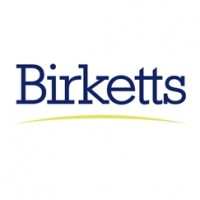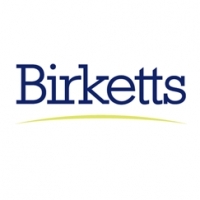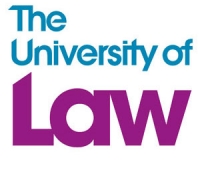So, your training contract is underway and all is going well. Talk of the next seat rotation trickles down from human resources, including the option of a client secondment. It means an entire seat of four-to-six months out of the office, away from your colleagues and fellow trainees, working for a new employer and being the fresh face of the office all over again.
Will such an experience enhance or endanger your employability on qualification – after all, out of sight, out of mind and all that?
Although a large number of law firms do send trainee solicitors on client secondment, there are some that don’t, preferring to send associates with a year or two post-qualification experience (pqe) under their belt.
Fears that trainees will not be supervised properly, will become detached from their law firm, or just haven’t the skills required when arriving straight from university or law school, are the reasons some graduate recruiters give for not sending trainees to clients.
However, those firms that do, couldn’t value the experience more. Hayley Halvatzis, graduate recruitment manager at Charles Russell Speechlys, explains: ‘Client secondments are a way for trainees to grow in confidence,’ she notes.
‘When they are in the firm, they are very guided, they always have a supervisor there and everything is checked before it goes out. On secondment, they are still supervised, but they really become a key point of contact within that organisation and are given a lot of responsibility – it’s a smaller team, so they get real responsibility.’
From a trainee’s perspective, Taylor Wessing’s Isobel Bullen-Smith, currently on secondment during her third seat at a multinational imaging and media company, describes the experience as ‘the best bridge between being a trainee and a newly qualified solicitor. You get good experience at Taylor Wessing, but here you really get stuck in straight away. I can’t wait to go back to the firm to see how much I have grown.’
Gaining Perspective
In addition to greater responsibility, secondments allow trainees to learn the holy grail of ‘commercial awareness’ early in their careers, to see first-hand the commercial reality and consequences of their legal advice.
Isobel explains: ‘It’s bigger-picture training. Compared to being a trainee in private practice where you tend to focus purely on your specific task, here I conduct my work with an understanding of the wider deal at all times. I get to see things from the beginning to the end and deal directly with sales, for example, so I can appreciate how the value of the deal can structure how I review a contract.’
Isobel is ‘hot desking’ while in-house, working for multiple lawyers and sitting ‘next to the board of directors – that’s incredible,’ she notes. ‘For larger, complex deals I have the opportunity to explain the situation to them to get things signed, which is an incredible experience. So it feels very collaborative, and it is good to see how everything fits together.’
Trainee solicitor Jack Carter at Charles Russell Speechlys recently completed a secondment to plum client ITV plc. He reiterates the personal growth and development that comes with the experience, and feels ‘completely different’ since returning to his firm.
‘At the beginning it was all a bit daunting: people come to you with random queries and expect you to know all the answers – you’re the legal expert in their eyes,’ he recalls.
‘Here [Charles Russell Speechlys], you’re lower down the order and there is always someone to ask. On secondment I was lucky because I wasn’t on my own, there was always someone to ask and the team there are really nice and made you feel welcome.’
There are several mechanisms in place at the firm to ensure a trainee on secondment is adequately supervised, says Hayley: ‘Generally there is a good support network for secondees. The teams tend to be smaller and more close-knit, and the feedback from trainees is how friendly everyone is. Trainees can also call the client partner any time, and we have an arrangement where fee earners who have been before [to the same client] can provide advice and hints and tips. So there is support from all angles.’
Isobel Bullen-Smith, trainee solicitor
Firm: Taylor Wessing
University: Durham
Degree: Law
Secondment: Multinational imaging and media company
Isobel is in her third seat and currently half way through a six-month secondment to a household-name company, a key client of the firm’s ITTC (IT, Telecoms and Commercial) department. It’s a position she describes as ‘very coveted’, while her enthusiasm for the experience is palpable: ‘I’m very much working for the client – it is the company first, and then Taylor Wessing.’
The firm offers two client secondments per intake, usually to third and fourth-seat trainees, so selection is very competitive. ‘I had done a bit of commercial contract work during my second seat, so I thought a client secondment would be the best way to learn if I wanted to qualify into corporate and commercial,’ explains Isobel. ‘The buzz phrase everywhere is ‘commercial awareness’, so I thought that doing this would be the best way to get that commercial awareness.’
In terms of work handled, ‘it is far more hands on here,’ she says. ‘We are handling our own matters and there is a lot more drafting experience. On the first day, I was asked to draft an NDA (non-disclosure agreement) – I was given supervision, but I got the first crack at it.’
Despite the increased responsibility, Isobel feels very supported, both by the client company and Taylor Wessing. The firm’s client partner is a long-standing adviser to the client and consequently visits on a weekly basis, enabling Isobel to have a regular catch up. ‘Taylor Wessing are very good at staying in touch and I also attend training and social functions at the firm,’ she says.
Isobel advises anyone thinking about a client secondment to definitely go for it. ‘It’s an excellent bridge from trainee to NQ – you are asked your opinion on matters and you get to use your initiative, so a secondment really sets you up for that jump to qualification. And the benefits of the responsibility and everything you learn far outweigh the face-time you lose when you away from your firm. Who else among your intake can say that they know a major client of the firm as well as you do?’
Support Network
David Morgan is a newly qualified solicitor at Farrer & Co and recently returned from secondment to Bauer Media UK, part of the global Bauer Media Group. He, too, felt well supported by both his firm and the company while working in-house.
‘Bauer was very supportive. They have a trainee from Reed Smith permanently on secondment, so they are used to providing supervision. Farrers were also regularly in touch throughout my secondment to check that everything was going smoothly’.
Fears of lack of supervision appear unfounded then, as long as the situation is managed adequately. Trainees speak of regular lunches with client partners and catch-ups with HR departments to ensure there are no issues during the secondment. And all speak of the ‘very friendly in-house teams’.
One of the potential negatives of a client secondment during a training contract is losing ‘face-time’ with your firm – being outside of the loop and, to be blunt, forgotten about when retention and job offers on qualification are being planned.
Farrer’s David had already been offered a job in the firm’s IP and commercial team on qualification before his secondment, but admits that being away from the office for such a prolonged period could be detrimental if a trainee is absent too early in their training contract, or if they fail to make the effort to keep in touch with their firm while away. However, the benefits still outweigh any risks:
‘If you are going on a long secondment, it is important to keep in touch with your firm and come back for events etc, so that your face isn’t forgotten. Overall, it is a very positive experience.’
Attending social and training events back at the firm during your secondment is a must, as well as keeping in touch with HR and the client partner.
David Morgan, NQ solicitor
Firm: Farrer & Co
University: Sheffield
Degree: Psychology
Secondment: Bauer Media UK
David spent ten years in the armed forces before commencing his legal studies and training, and had already completed a seat in IP and commercial earlier in his training contract, making him the perfect candidate for secondment to Bauer.
The company owns a raft of radio stations, music TV channels and magazine titles in the UK, including, amongst others, the radio stations Kiss, Absolute and Magic; the magazines Grazia, Heat and Empire; and the Box Plus Network of music TV channels through a joint venture with Channel 4.
Going on secondment ‘opens your eyes to what it is like [to work in-house] and how the dynamics are different,’ reveals David. ‘In-house you feel like you are working in a collaborative way with people directly in the business. In a law firm there is more of an adviser-client relationship.’
Typical tasks included working on digital agreements and recording contracts, for example, matters he was unlikely to encounter back at his law firm whilst a trainee. He worked within the in-house legal team comprising four lawyers plus another trainee seconded from fellow Bauer panel firm Reed Smith.
‘The smaller team means you are handling good quality work and given a lot of responsibility,’ says David. ‘It gives you a perspective of what it is like to work in-house, the different pressures and what the client looks for and needs from their external advisers.’
It wasn’t all work and no play. Inevitably, working for a media company the size of Bauer has its perks. David was invited to the company’s glamorous, annual in-house award ceremony for employees, which recognises the efforts of the various departments including advertising, radio and publishing. After the formal awards ceremony, there a was big party held in London’s Docklands, which included performances by Pixie Lott and 5 After Midnight.
‘Secondment is a great opportunity and you should definitely consider it,’ concludes David. ‘It’s a good way to boost your CV – if you were to move in-house in the future, it is good to have had the experience already.’
Weighing it up
On balance, therefore, taking the plunge to go on secondment while still a trainee can only benefit your career. Managed well, secondments are a win-win for both the firm and the trainee. The latter gains invaluable experience, while the former is able to augment client relationships.
‘As well as improved trainees, it allows us to know what a client wants and we can report back to the client partners, so we are able to manage client relationships better,’ confirms recruiter Hayley.
She dismisses suggestions that secondment during a training contract is too early in a trainee’s career: ‘Trainees do add value – we are really proud of our trainees, and the client clearly wants them there because they have specifically asked for one.’
Indeed, could the experience be almost too appealing to trainees, who may decide to alter tack and move in-house for good on qualification? It does happen, admits recruiters.
However, while the responsibility gained while on secondment is invaluable, the diversity and depth of work undertaken is not likely to be matched by that at a law firm, where lawyers tend to be more specialised than in-house counsel.
‘There are pros and cons [to being in-house],’ notes Jack. ‘People say you are better off being in private practice for a good few years first as the variety of work is greater and you get more experience under your belt. And then you may decide it’s not what you want to do after all.’
Jack does point out the greatest benefit of all to doing a client secondment: ‘You don’t have to do time recording – that is such a nice thing to not have to do; you can’t underestimate how good that is!’
Jack Carter, trainee solicitor
Firm: Charles Russell Speechlys
University: Bristol
Degree: Law and German
Secondment: ITV plc
Jack is currently a third seat trainee and went on secondment relatively early in his training contract, during his second seat. His secondment to ITV plc – the UK’s original commercial broadcaster and FTSE 100 company with productions in the UK, US and many other countries around the world – appealed because it meant working at the actual tv studios at London Television Centre, which sounded fun, he says, and because it was a commercial seat, his area of interest.
The experience lived up to his expectations and more. ‘I am still in contact [with former colleagues] and will occasionally meet them. I feel completely different since coming back. Being thrown in the deep end like that gives you more confidence in your ability and you feel so much more independent.’
ITV has a panel of 9-10 law firms which sometimes provide trainee secondees, and while there are a number of legal teams within the company, Charles Russell Speechlys always sends its trainee to Group Legal, the team that handles all group legal affairs, such as M&A, litigation, IP and technology. This ensures a very varied workload.
‘You get to see the commercial aspects that you wouldn’t consider before, and you learn to take in other considerations, such as understanding the value of a contract to the company, for example,’ notes Jack.
Indicative of the responsibility entrusted in him, Jack was assigned as the main legal representative to ITV subsidiary SDN, and as such he would attend all the SDN meetings and was the main point of contact for legal advice.
Of course, more important than the experience gained, the boost to his career and the benefits of cultivating a close relationship with a key client of his firm, Jack was able to regularly schmooze with presenters and guests from Loose Women while in the staff canteen. Moreover, his secondment coincided with the latest, and much-hyped, series of Love Island; the winners were whisked straight from the island to attend media duties at the London studios, including a visit to Jack’s floor. He did what any respected lawyer would do: hung about late in the office to catch a glimpse.









